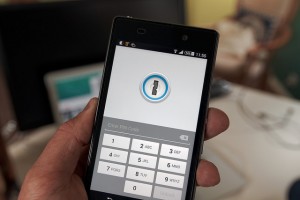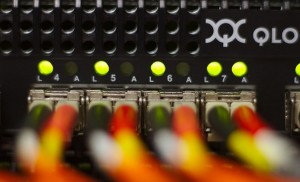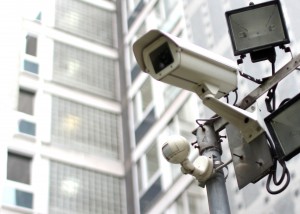 When you picture a surveillance monitoring station what do you see? Is it a half awake guard staring blankly at multiple monitors? If that’s the case you can scratch that image from your mind. The future of monitoring services is quickly shifting and adapting to our society’s need for streamlined and efficient processes. As surveillance systems migrate from analog to IP with megapixel network cameras, and our world becomes more and more connected through the IoT (Internet of Things), the desire to access and monitor footage from anywhere increases. This is where the idea of remote monitoring comes into play.
When you picture a surveillance monitoring station what do you see? Is it a half awake guard staring blankly at multiple monitors? If that’s the case you can scratch that image from your mind. The future of monitoring services is quickly shifting and adapting to our society’s need for streamlined and efficient processes. As surveillance systems migrate from analog to IP with megapixel network cameras, and our world becomes more and more connected through the IoT (Internet of Things), the desire to access and monitor footage from anywhere increases. This is where the idea of remote monitoring comes into play.
Being able to remotely monitor surveillance footage from virtually anywhere is a convenience that, up until recently, hasn’t been a pervasive security feature. It differs from alarm monitoring in the sense that a service representative isn’t necessarily waiting around for an alarm to go off, instead they are actively watching live recordings to catch potential disasters before they happen. In the past a company would typically hire people to monitor cameras on site, which isn’t always the most economical or effective method. Today, companies are using off-site monitoring services that have the ability to keep watch over multiple facilities 24/7. In conjunction with that, business owners have the ability to download apps that allow them to access their surveillance footage at their convenience via a mobile device.
At Perfect Connections, Inc. our experts typically recommend a monitoring service as part of a comprehensive security system to help ensure its effectiveness. Our team of licensed technicians have been providing security solutions to businesses throughout northern and central New Jersey for over 25 years. The technological climate is ever changing and we always do our best to stay on top of relevant trends that will benefit our customers.
Remote monitoring allows an individual or group of users to access surveillance footage through a secured network from virtually anywhere via a smartphone, tablet, computer, or mobile device. Why is this beneficial? It can help cut down, or eliminate entirely, the need to have an on-site staff staring at monitors, how effective can that be anyway? According to Doug Marman, CTO of VideoIQ Inc. and founder of Remote Guarding Alliance, “…humans monitoring video screens grow fatigued to the point of ineffectiveness after only 20 minutes…” Marman argues that the traditional method of monitoring surveillance is at best a practice in “hindsight” strategy. Meaning by the time a reaction is made the damage is done or the perpetrator has already escaped.
Marman’s system of remote monitoring using a combination of video analytics and audio over IP, or voice over IP (VOIP), decreases response time and increases the ability to monitor a large quantity of cameras at once. And in contrast to human attention span, video analytics are “100 percent vigilant.” Marman illustrates the ability to interact with intruders instantly via audio over IP, citing how quick they are to abandon their criminal attempt when someone is calling them out over a speaker on site. While audio interaction is an intriguing feature that allows for a virtual presence at all times, it may not be necessary depending on your type of business and your security needs. What matters most is the ability to react instantly, reduce any lag time in response, and prevent false alarms as they typically result in fines and wasted essential resources.
With response time being one of the top benefits of remote monitoring it can also reduce overall monitoring costs, increase scalability options, and send notifications via e-mail or other media. While the benefits of a remote monitoring system may eliminate the need to hire on-site staff, it doesn’t necessarily mean you should rely solely on self-monitoring. If you were to take on the task of monitoring everything yourself, your business could be at risk. Imagine you’re monitoring from a smartphone, it runs out of battery and you don’t have your charger handy. What if you misplace your smartphone and miss an important notification? Think about logistics too, as a business owner even you need to get sleep, you can’t be vigilant 24/7.
Having the ability to self-monitor and view your cameras from anywhere should be looked at as an added layer of security, not your only means of protection. According to Jerry Cordasco, vice president of operations for G4S Video Monitoring Support and Data Center, “A better choice for remote video surveillance is the use of a professional monitoring facility.” Having a remote monitoring service provides a virtual presence 24/7 that can access real time footage and initiate the appropriate response immediately.
Security systems can be an effective crime fighters, but what good are they if an alarms goes off and no one is notified or made aware? What good is a surveillance system that no one is monitoring? You might get lucky and capture a license plate number that could eventually lead you to the perpetrator after the fact, but by that point the damage has been done. The goal of a remote monitoring service is to provide timely and accurate responses to disturbances on site.
As a security systems provider, our team at Perfect Connections, Inc. understands the importance of immediate action. Mere seconds can be the difference between prevention and disaster. We have been providing comprehensive security system solutions, which include monitoring services, to facilities throughout northern and central New Jersey since 1992. Every business has different security risks, which is why we tailor our solutions to fit your specific needs.
If you live or run a business in Central or Northern New Jersey and would like information on any of the topics discussed above, please call 800-369-3962 or simply CLICK HERE.
Image Credit: Image by Intel Free Press-Flickr-Creative Commons
 We use our smartphones and other mobile devices for many functions in our daily lives. It’s almost impossible to go through an entire day without seeing someone tapping, scrolling, or swiping through their phone, never mind using your own phone. We’ve created a mobile environment where convenience lies in the palm of our hands.
We use our smartphones and other mobile devices for many functions in our daily lives. It’s almost impossible to go through an entire day without seeing someone tapping, scrolling, or swiping through their phone, never mind using your own phone. We’ve created a mobile environment where convenience lies in the palm of our hands. Does your security system, or part of it, rely on your company’s internet network? Or are you considering a system that is at least partially dependent on network connectivity? If so, what happens if that network fails or is compromised? Fortunately nowadays the chances of your network dropping or losing connection is pretty slim, in fact the probability of most Internet Service Providers (ISPs) experiencing an outage is about
Does your security system, or part of it, rely on your company’s internet network? Or are you considering a system that is at least partially dependent on network connectivity? If so, what happens if that network fails or is compromised? Fortunately nowadays the chances of your network dropping or losing connection is pretty slim, in fact the probability of most Internet Service Providers (ISPs) experiencing an outage is about 
 s a vital role in any comprehensive security system. It helps authorities catch criminals and provides helpful insight into your business operations by collecting and analyzing data on a daily basis. Where and how is all of this visual and analytical data being “collected?” That is the ever pressing question for system integrators and end-users alike. Storing surveillance data can be as important to the efficiency of your security system as having the surveillance equipment itself. We are catapulting ourselves into the future with the constant evolution of technology in all aspects of life including security system components, and surveillance storage solutions are no exception, but not all are created equal.
s a vital role in any comprehensive security system. It helps authorities catch criminals and provides helpful insight into your business operations by collecting and analyzing data on a daily basis. Where and how is all of this visual and analytical data being “collected?” That is the ever pressing question for system integrators and end-users alike. Storing surveillance data can be as important to the efficiency of your security system as having the surveillance equipment itself. We are catapulting ourselves into the future with the constant evolution of technology in all aspects of life including security system components, and surveillance storage solutions are no exception, but not all are created equal.
 No business is immune to risk or unpredictable circumstances. In an emergency, often times, there’s an influx of panic for those involved. Our dedicated and hardworking emergency responders-firefighters, EMTs, ambulance, and police-are the ones who keep a strong front and are prepared to help us through these tough situations. As a business owner wouldn’t it be great if there was a way to lessen the constant fear of unknown threats to your organization? Fortunately, there is something you can do for your business, your employees, yourself, and the responders. Be prepared and have a plan.
No business is immune to risk or unpredictable circumstances. In an emergency, often times, there’s an influx of panic for those involved. Our dedicated and hardworking emergency responders-firefighters, EMTs, ambulance, and police-are the ones who keep a strong front and are prepared to help us through these tough situations. As a business owner wouldn’t it be great if there was a way to lessen the constant fear of unknown threats to your organization? Fortunately, there is something you can do for your business, your employees, yourself, and the responders. Be prepared and have a plan. Fire is an unpredictable force that can wreak havoc on any business. It is imperative as a business owner, facility manager, or building owner that the proper precautions are in place to help prevent catastrophe. The
Fire is an unpredictable force that can wreak havoc on any business. It is imperative as a business owner, facility manager, or building owner that the proper precautions are in place to help prevent catastrophe. The 
